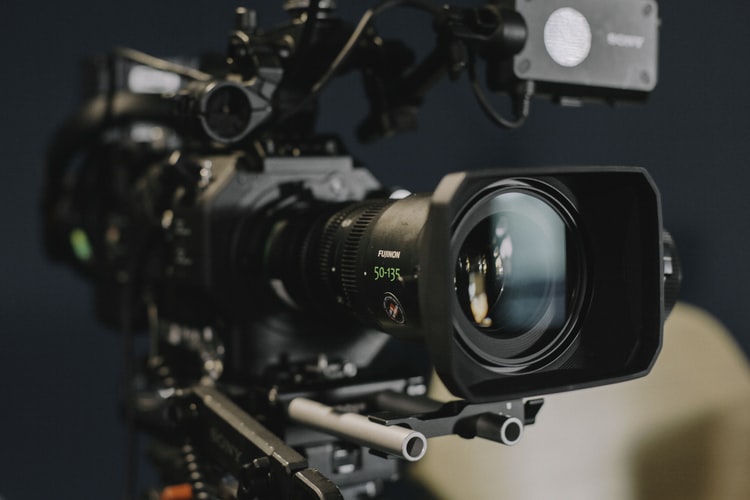Video is an excellent marketing tool for real estate agents and is something all of them would touch on during their real estate course Melbourne. Many of real estate agents have used video marketing to sell properties and make the process easier and faster.
A well-made real estate video – whether done professionally as a virtual tour shot with a phone or drone aerial footage when used correctly, is a valuable resource for property buyers and sellers, as it presents the property in much more extensive detail than a photo or written description.
A 2017 “Profile of Home Buyers and Sellers” survey found 39% of homebuyers used property websites with video during their searches, and 56% of them stated it was “very useful.”
The survey was repeated in 2019 and found that property portals were the most reliable resource for correct real estate information, placing them above the agents themselves.
How do real estate agencies get people interested in their property listings?
Video marketing is one of the most effective methods because it works in all steps of the sales funnel:
It produces crucial page views at the top of the funnel—links to pages with an embedded video gain 157% more organic search traffic than pages without it.
Near the middle of the funnel, an attractive video can be the push buyers need to contact an agent or the homeowner.
An agent’s well-produced footage can also convince sellers to work with the agent, as they are confident that their own property will be shown in the same way.
Overall, property listings with a video produce more than four times the number of leads.
As well as giving an overview of a house or apartment video can also be used for:
- In-depth guided tours of all rooms in the home
- Previous customer testimonials from buyers and sellers on their positive experiences with the agent.
- Agents can introduce themselves and their selling techniques in a video targeted at sellers.
Drone footage
Aerial footage demands attention, as it is entertaining to watch and uniquely informative. More specifically, it offers a different view of property, past the standard street-level panorama.
How to shoot and share property videos
When thinking about creating real estate videos, you need to decide to DIY or hire a professional video production agency and social media experts. Either approach can work, but it’s essential to know what you are getting into before deciding.
DIY Footage
DIY videos are just that – you shoot and edit the videos yourself. DIY footage can be produced with a simple DSLR or even a phone. You will, of course need a drone for aerial footage.
Advantages:
- You have total control over the content.
- It is considerably cheaper than hiring professionals.
Disadvantages:
- You might have difficulties in getting the quality and angles correct.
- Shooting video can be time-consuming.
- Overall, making a decent video requires considerable technical skills and digital media knowledge.
There are numerous how-to guides for shooting videos on YouTube to help you; DIY real estate videos are doable, but challenges may occur.
You will need wide-angle cameras and stabilisers if you are using a digital single-lens reflex camera (DSLR) and a high-quality microphone. Without them, you will likely end up with unfocused and shaky footage that looks unprofessional.
Good editing is also essential. You will usually make a video that showcases a house in the sequence of a real-life tour. It takes a lot of work to get a DIY video right unless you are already familiar with editing software.
Professional or premade videos
These are two distinct types of video, but third parties produce both types as opposed to DIY. Professional video includes any kind of input from dedicated videographers, who will shoot and then edit footage to your requirements.
Premade video is different. Some services offer stock footage for customisation which you combine with your footage to make real estate videos. This is particularly useful for social media. Others provide a drag-and-drop video creator for quickly turning your footage into a complete video.
Advantages
- The work is done by professionals.
- Less time-consuming than making your own videos.
- Can be customised depending on the audience.
Disadvantages
- You do not have full control over the content.
- Premade videos can be expensive.
- Stock footage might not be as captivating as unique shots.
Where can you publish real estate videos?
Property videos are part of a multi-channel marketing strategy. Two of the most popular channels are:
Social media
Real estate professionals are omnipresent on social networks like Instagram and YouTube. If you work with such an agent, they can market your video for you.
Real estate websites
If you have ever looked up a property online, chances are you have gone to either Rightmove or Zoopla. These sites allow sellers to embed videos in their listings to give buyers a more accurate understanding of a property.
Apart from social media and real estate portals, videos can be included in email marketing, on an agency’s website, or shared on platforms like Facebook.
How long should a promotional real estate video last?
The length depends on the type of video you’re making. Most real estate videos are between two and five minutes long – short enough to keep viewers’ attention and long enough to cover the property’s main features.
What should a real estate video include?
Real estate video has a set of unique styles. Here are some ideas:
Listing videos: a video designed to supplement a property listing. Listing videos should include an overview of the property, a tour of the rooms and important features, and details such as the location, size of the property, and the agent contact details.
Testimonial video: A video featuring testimonials or interviews with an estate agent’s previous buyers and sellers. Testimonial videos should include a well-edited, suitable testimonial that appears genuine and positive. Consider including FAQs, background music, aerial, and interior shots of the property.
Agent introduction videos: These are videos providing a summary of an agency or agent, how and where they work, and why buyers or sellers should be comfortable working with them.
Information videos: These are videos of a real estate agent giving guidance to buyers or sellers on managing real estate transactions.
Good footage for information videos should include answers to repeatedly asked questions and resolutions to different problems.
Summary
Buying or selling a home is a convoluted process. There are many possible difficulties related to mortgages, when to buy or sell, and how to make an offer. Buying or selling a residence can be made much more manageable with a high-quality video.
Whether you do it yourself or hire a professional team, creative real estate video production can be decisive in landing the key client. Video should be part of any property sale marketing.



